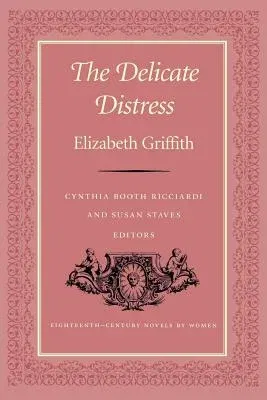Elizabeth Griffith
(Author)Delicate Distress-Pa (Revised)Paperback - Revised, 17 April 1997

Qty
1
Turbo
Ships in 2 - 3 days
In Stock
Free Delivery
Cash on Delivery
15 Days
Free Returns
Secure Checkout

Part of Series
Eighteenth-Century Novels by Women
Print Length
304 pages
Language
English
Publisher
University Press of Kentucky
Date Published
17 Apr 1997
ISBN-10
0813109256
ISBN-13
9780813109251
Description
Product Details
Author:
Book Edition:
Revised
Book Format:
Paperback
Country of Origin:
US
Date Published:
17 April 1997
Dimensions:
22.94 x
15.37 x
2.13 cm
ISBN-10:
0813109256
ISBN-13:
9780813109251
Language:
English
Location:
Lexington
Pages:
304
Publisher:
Weight:
480.81 gm